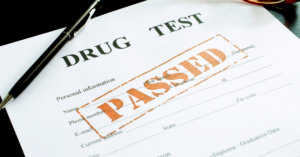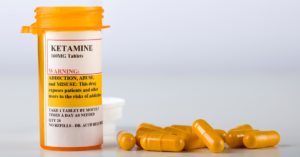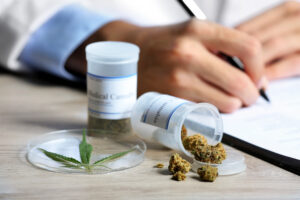It’s Friday night, the workweek is over, and you’re ready to unwind. For many, this means hitting the town, catching up with friends, and indulging in a few drinks. However, what starts as a harmless night of fun can quickly become a life-threatening habit known as binge drinking. Contrary to popular belief, this sort of occasional drinking has severe risks. But before we get to the dangers of binge drinking, let’s answer what the terms mean.
What is Binge Drinking?
Binge drinking means consuming a large amount of alcohol quickly, typically resulting in blood alcohol concentration (BAC) levels above the legal driving limit. For men, binge drinking is consuming five or more alcoholic drinks within two hours. Meanwhile, it’s consuming four or more drinks within the same timeframe for women. And as the name suggests, the weekend warrior is someone who partakes in excessive drinking on weekends, often making up for the lack of alcohol consumption during the weekdays. Think of it as a race against your own liver! But this thrilling expedition comes with its fair share of risks.
The Dangers of Binge Drinking
Now, let’s shed some light on the drawbacks of being the weekend warrior and the dangers of binge drinking it unleashes!
Health Consequences
It’s a no-brainer that binge drinking takes a severe toll on the body, both in the short and long term. It leads to impaired judgment, loss of coordination, and increased risk-taking behavior. In fact, excessive alcohol consumption also leads to blackouts, where one may have no recollection of events during their drinking episode. Over time, binge drinking can cause liver damage, cardiovascular problems, and an increased risk of certain types of cancer. The weekend warrior unknowingly exposes themselves to these risks repeatedly.
Mental Health Implications
While alcohol can seem like a go-to for relaxation and unwinding, going overboard with the drinks can seriously affect mental health. Since binge drinking interferes with the brain’s neurotransmitters, it leads to mood swings, anxiety, and depression. The weekend warrior, who relies on alcohol as a coping mechanism after a stressful week, may inadvertently worsen their mental well-being in the long run.
Relationship and Social Ramifications
The altered state of mind during heavy drinking episodes can cause impulsive behavior and poor decision-making, which may result in damaged friendships, conflicts, and even legal consequences. That means this fleeting pleasure can jeopardize your personal and professional life. You risk alienating your loved ones and harming your social interactions by prioritizing alcohol-fueled activities over genuine connections.
Increased Accident Risks
If that wasn’t it, excessive drinking poses a significant threat to personal safety and public health. Impaired judgment and diminished coordination increase the likelihood of accidents, including car crashes, falls, and other injuries. In fact, around 31% of all car accidents in the United States occur due to drunk drivers.
Long-Term Impacts on Work
While the weekend warrior may believe their heavy drinking is confined to weekends, the consequences can spill over into their professional lives. Excessive alcohol consumption impairs cognitive function, decreases productivity, and increases absenteeism. That ought to hamper your professional life. Also, frequent hangovers can affect job performance and limit career advancement opportunities. So, it’s clear: the dangers of binge drinking extend far beyond the weekends.
Breaking Free from the Dangers of Binge Drinking
Now that you know of all the hazards associated with binge drinking, it’s time to explore alternative paths that can help you reclaim your weekends in a healthier, more fulfilling way. Here are a few tips to end the weekend warrior cycle and the dangers of binge drinking that come with it:
Set Limits
Establish personal boundaries and limits when it comes to alcohol consumption. Plan your nights out and decide in advance how many drinks you’ll have. Stick to your plan and avoid exceeding your predetermined limits.
Pace Yourself
Instead of consuming several drinks quickly, try spacing them out over an extended period. Sip slowly and savor each drink. Remember, it’s not a race; the focus should be on enjoying the experience rather than reaching a certain level of intoxication.
Alternate with Non-Alcoholic Beverages
Intersperse alcoholic beverages with water, soda, or other non-alcoholic drinks. This practice helps you stay hydrated, reduces the overall amount of alcohol consumed, and slows the drinking pace.
Explore Healthy Alternatives
Instead of relying solely on alcohol for relaxation or stress relief, explore healthier alternatives. Engage in activities such as exercise, meditation, or pursuing hobbies that help you unwind and decompress without the negative consequences of excessive drinking.
Seek Support
If you find it challenging to break free from the habit of being a weekend warrior and the dangers of binge drinking, don’t hesitate to reach out for help. Talk to friends or family who can guide and support your journey.
You can always reach out to us, too! At Diamond Recovery, we are committed to helping individuals take their initial strides toward a substance-free life. Our primary goal is to establish a caring and empowering setting where patients can begin their recovery. We strive to provide a supportive environment that fosters growth, equips patients with valuable knowledge, and moves them toward the subsequent stages of this process.






